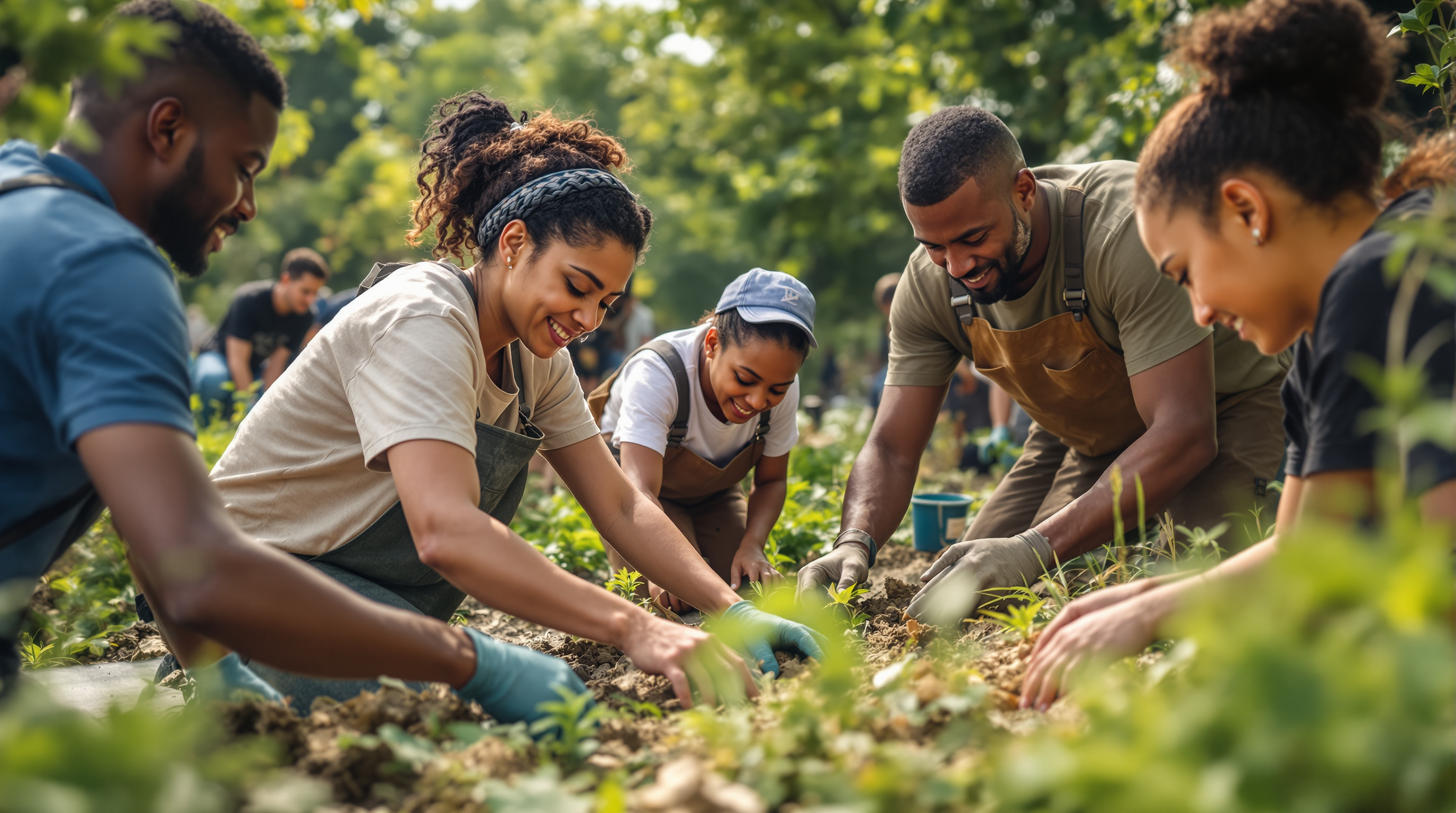
The Importance of Social Connection
While romantic relationships receive significant attention, the broader network of social connections—friendships, family, community—plays an equally vital role in wellbeing and even supports romantic relationship health.
Research consistently shows that social connection ranks among the strongest predictors of happiness and longevity. People with strong social networks live longer, recover from illness faster, and report greater life satisfaction than socially isolated individuals. The quality of these connections matters more than quantity—a few close relationships provide more benefit than many superficial ones.
Diverse relationships meet different needs that no single person, including a romantic partner, can fulfill alone. Friends might share specific interests your partner doesn't, family provides historical connection and unconditional love (in healthy families), and community involvement creates purpose and belonging. Expecting one person to meet all these needs places unrealistic pressure on romantic relationships.
Social support outside romantic relationships provides crucial perspective and support during relationship challenges. Friends and family offer sounding boards when you're processing conflicts, provide reality checks when you might be overreacting or underreacting, and support you through breakups if relationships end.
Maintaining friendships and family connections prevents unhealthy isolation that sometimes occurs in romantic relationships, particularly in early stages when couples want constant togetherness. Partners who maintain outside relationships bring richer experiences and perspectives to their romantic relationship.
Social wellness includes both receiving and providing support. Being there for friends and family during their challenges creates purpose and strengthens bonds. Relationships are reciprocal—both giving and receiving support create connection and meaning.
Community involvement—whether through volunteering, interest groups, religious communities, or neighborhood participation—creates belonging beyond personal relationships. This broader connection to something larger than yourself provides meaning and resilience during personal challenges.
Social skills developed through various relationships enhance all connections, including romantic ones. Learning to navigate different personalities, resolve conflicts with friends, set boundaries with family, and communicate across diverse relationships builds capabilities that strengthen romantic partnerships.

Nurturing Friendships Alongside Romance
Maintaining strong friendships while in romantic relationships requires intentional effort but significantly enhances both friendship and romantic relationship quality.
Prioritizing friend time despite busy schedules demonstrates that these relationships matter. This might mean regular friend dates, weekend activities, or simply consistent communication. When romance becomes the only relationship priority, friendships atrophy, leaving you isolated if the romantic relationship ends.
Being present with friends rather than constantly discussing your romantic relationship maintains friendship depth. While sharing about your partner is natural and appropriate, dominating every conversation with relationship talk reduces your friendship to you processing your romance. Friends appreciate being valued for themselves, not just as relationship counselors.
Respecting your partner's need for friend time, just as you maintain yours, keeps both individuals connected to their social networks. Jealousy or resentment about time spent with friends indicates insecurity that needs addressing rather than restricting healthy social connection.
Choosing friends who respect and support your relationship while you respect your friendships creates healthy balance. Friends who consistently badmouth your partner or encourage relationship-threatening behavior aren't supportive friends. Conversely, partners who isolate you from friends or feel threatened by your outside relationships demonstrate unhealthy controlling behavior.
Maintaining appropriate boundaries protects both friendships and romantic relationships. This includes not sharing inappropriate intimate details about your partner with friends, not allowing friends to inappropriately influence relationship decisions, and ensuring that no friendship crosses emotional or physical boundaries that violate your romantic commitment.
Including your partner in friend activities when appropriate helps them understand this important part of your life. Similarly, getting to know your partner's friends creates fuller understanding of them. However, sometimes separate friend time remains important for maintaining individual identity.
Making new friends as a couple can enrich both your social life and relationship. Couple friends provide unique support—people who understand relationship dynamics firsthand and with whom you can share couple activities.
Recognizing when friendships are unhealthy and limiting them protects your wellbeing. Not all social connection is positive—toxic friendships that drain you, encourage bad behavior, or consistently create drama deserve reevaluation regardless of relationship status.
Trusted Resources
- APA - Loneliness and Social Isolation - research on importance of social connection

Building Community and Belonging
Beyond individual relationships, broader community connection creates belonging that supports overall wellbeing and provides meaning beyond personal relationships.
Finding communities aligned with your interests or values creates natural connection points. This might include hobby groups, professional organizations, volunteer opportunities, religious or spiritual communities, or neighborhood associations. Shared purpose or interest provides foundation for connection.
Volunteering offers dual benefits—contributing to causes you care about while building social connections with like-minded people. The meaning created through helping others enhances wellbeing independent of personal relationships while simultaneously creating community.
Participating regularly rather than sporadically builds deeper community bonds. Showing up consistently allows people to know you beyond surface level, creating the familiarity that develops into genuine connection and belonging.
Contributing actively rather than just consuming strengthens community ties. Taking on roles, organizing events, or supporting others' efforts demonstrates investment that deepens your stake in the community and others' connection to you.
Diversity in your communities—different ages, backgrounds, perspectives—enriches your life and prevents echo chambers. While shared interests create initial connection, diversity within communities provides growth opportunities and broader perspective.
Online communities, while not replacing in-person connection, can supplement social wellness, especially for people with mobility limitations, rare interests, or who live in isolated areas. Virtual communities around shared experiences or interests provide support and belonging when local options are limited.
Recognizing that building community takes time prevents premature discouragement. Deep belonging develops over months and years of consistent participation, not from attending one or two events. Patience with the gradual process of community integration allows authentic connection to develop.
Balancing community involvement with personal relationship needs and self-care prevents burnout. While social connection is important, over-commitment to community activities can strain romantic relationships and personal wellbeing. Finding sustainable balance honors all your needs.

Sustaining Relationships Across a Lifetime
The longest and most fulfilling relationships share a common thread: partners who invest in their own wellbeing as much as they invest in the relationship itself. Research increasingly shows that personal health and vitality directly influence relationship quality and longevity.
Couples who maintain their physical and mental health report higher relationship satisfaction decades into their partnerships. Energy levels, cognitive clarity, and emotional resilience all contribute to your capacity to show up fully for a partner. When one partner experiences chronic fatigue or cognitive decline, relationship dynamics often shift in challenging ways.
The connection between personal longevity research and relationship wellness has attracted growing attention. Those who prioritize their own health and vitality often find this investment pays dividends in their relationships. Having the energy to engage meaningfully, the mental clarity to communicate effectively, and the emotional reserves to navigate challenges together—these all depend on individual wellness.
Growing older together represents one of life's greatest gifts, but it requires intentional investment in the health that makes those years vibrant rather than merely endured. Partners who support each other's health journeys often report that this shared focus strengthens their bond while extending the years they can enjoy together.
Resources for Relationship and Personal Longevity
- National Institute on Aging - research on healthy aging and relationships
- Longevity.Technology - advances in longevity science and wellness research
- Oath Peptides - Epithalon - research peptide studied for cellular longevity mechanisms
- Blue Zones - research on communities with exceptional longevity and relationship quality